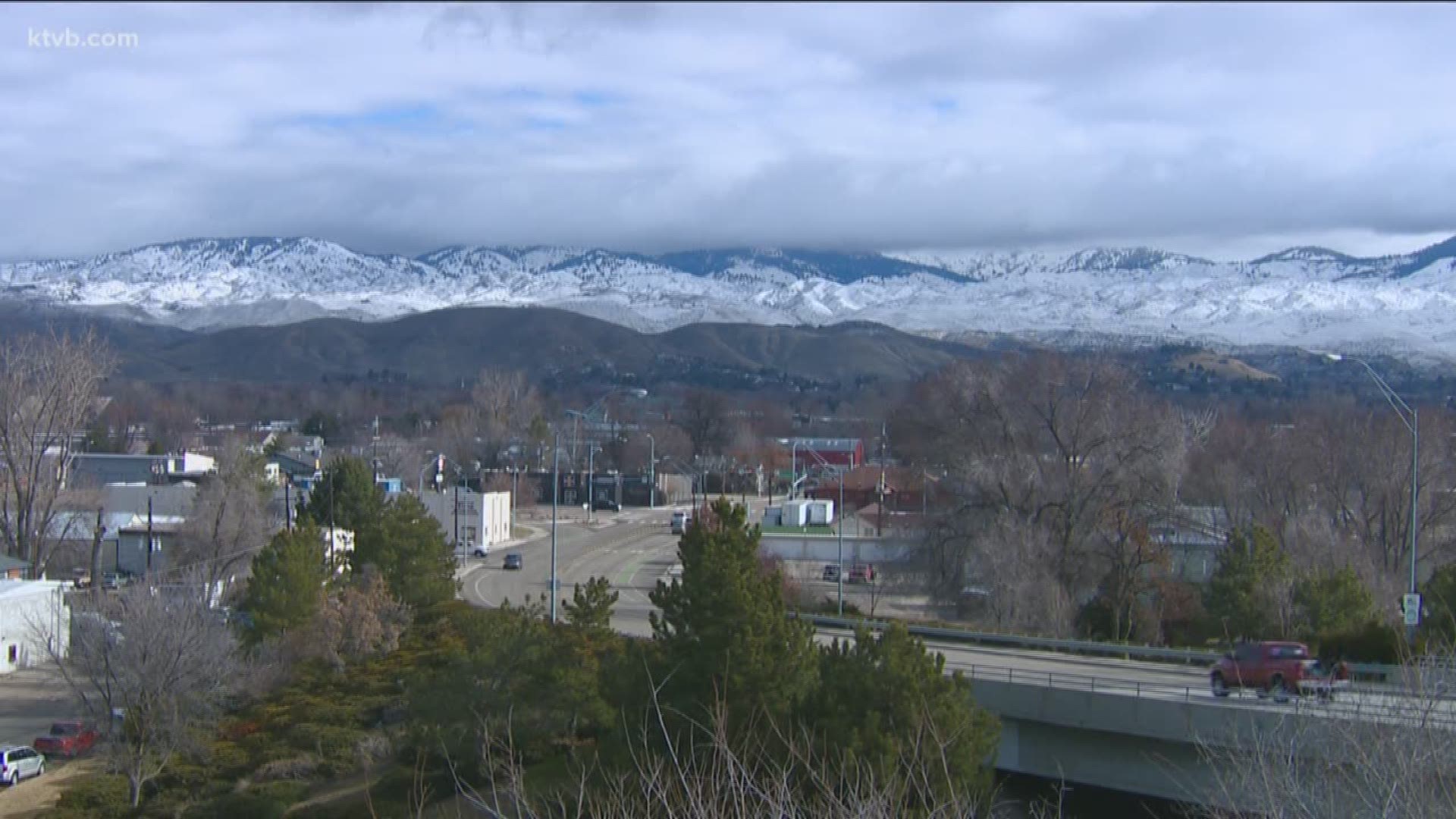BOISE, Idaho — Thanks to a heavy snowpack in the mountains and wet winter in the Treasure Valley, southern Idaho can expect a delayed wildfire season, according to Boise Fire officials.
Communities in the mountains may think the snowy winter may have been a challenge to deal with, but it is paying off as warmer weather approaches.
Wildfire crews are still gearing up and preparing for dry conditions that could change before summer, and they are urging homeowners to do the same.
"Right now as we look out into the foothills, we're seeing a lot of the green growth coming up," Tony Piscopo, the Division Chief of Wildfire for the Boise Fire Department. "We've been getting a lot of precipitation and a lot of moisture across the area."
Piscopo says early forecast models show an average wildfire season in southern Idaho with a late start.
"We've been getting some normal temperatures and normal precipitation throughout the southern portion of the state, the snowpack, however, is probably going to delay fire season a little bit this year," he said. "So we are probably looking at below normal fire potential through April, May and maybe into June."
However, wildfire season has already started in parts of northern Idaho with two small fires in Boundary County last week. Both were quickly contained.
"We have to be constantly on alert," Chris Larson, the deputy fire marshal with the Northern Lakes Fire District, said. "We have to be vigilant on our preparation all year round."
Homeowners can help lower fire dangers by doing simple yard work around their homes this spring, cutting the potential wildfire fuel.
"Cleaning out around shrubs, cleaning out around the home, getting out all of the woody dead debris away from their property, making sure that the plants and shrubs that they have are firewise," Piscopo said.
He says everyone can help out by practicing a little common sense and avoiding activities that could spark the next big wildfire.
"Chains sparking, kids playing with matches, the exploding targets have been a problem in recent years, going out and recreating and working on fences, welding, things like that," Piscopo said.
While peak wildfire season doesn't typically start until June, fire crews are undergoing training to prepare for future fires when drier conditions start.

